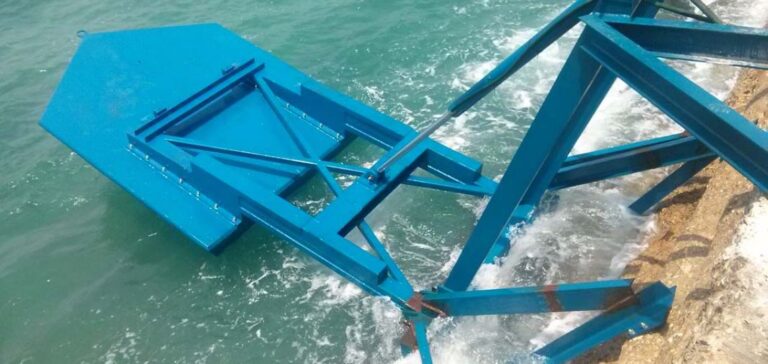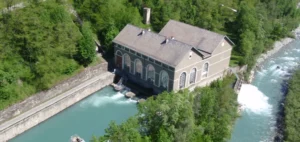Israel has achieved a significant milestone in its energy strategy with the inauguration of its first pilot station producing electricity from waves. Located in Jaffa Port, this power plant was developed by Eco Wave Power Global AB in partnership with EDF Renewables Israel, with support from the Tel Aviv-Yafo Municipality.
This project is part of a broader initiative to diversify Israel’s energy sources, reducing reliance on traditional energy while integrating innovative technologies into the national grid. It also marks the first instance of a wave energy solution being directly connected to a national energy network.
Strategic partnerships for a unique project
The project has benefited from the support of Israel’s Ministry of Energy, which recognized Eco Wave Power’s technology as a “pioneering technology.” EDF Renewables Israel, a key player in the renewable energy sector, contributed to its implementation, providing expertise in designing and integrating innovative solutions.
The Tel Aviv-Yafo Municipality facilitated the project’s integration into local infrastructure and ensured its execution at the Jaffa Port site. This public-private partnership demonstrates a pragmatic approach to economic development, built on collaboration between public institutions and private enterprises.
Economic and energy objectives
This initiative aims to address economic challenges related to increasing electricity demand. By harnessing available marine resources, this type of project could lower operational costs in the long term and provide a stable energy source.
Integrating this innovative technology into the national grid contributes to Israel’s strategic goal of strengthening energy resilience. Diversifying energy sources while limiting reliance on imports enhances energy security and stimulates local innovation in a growing sector.
Development perspectives
The Jaffa station could serve as a model for future projects along other coastal sites in Israel. Over time, the technology developed by Eco Wave Power Global AB could be deployed on a larger scale, solidifying Israel’s position as an innovator in the marine energy sector.
Economically, such projects could attract increased foreign investment and technological partnerships, thereby boosting the competitiveness of Israel’s energy industry. Additionally, institutional support from the Ministry of Energy and the official recognition of the project should encourage similar initiatives.






















